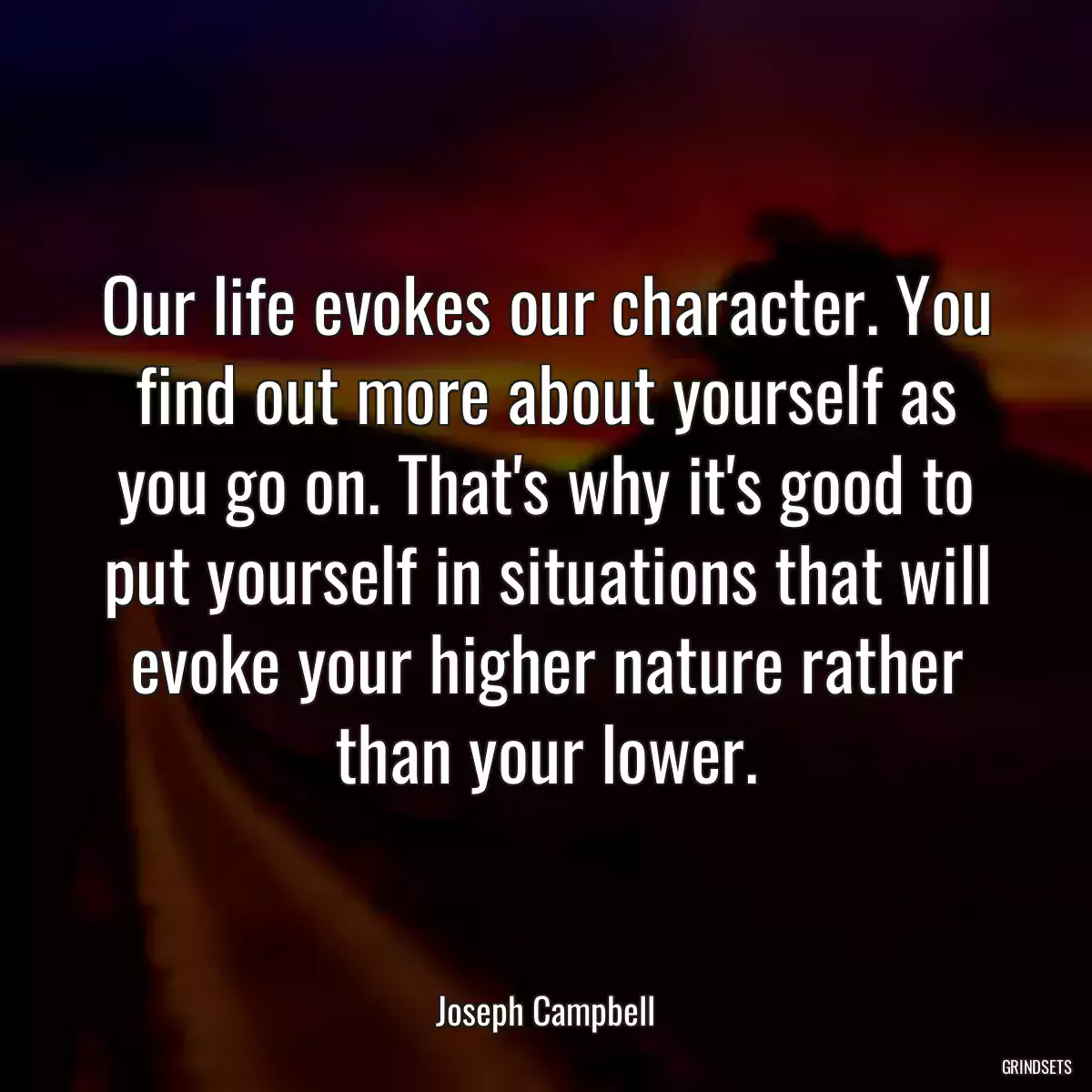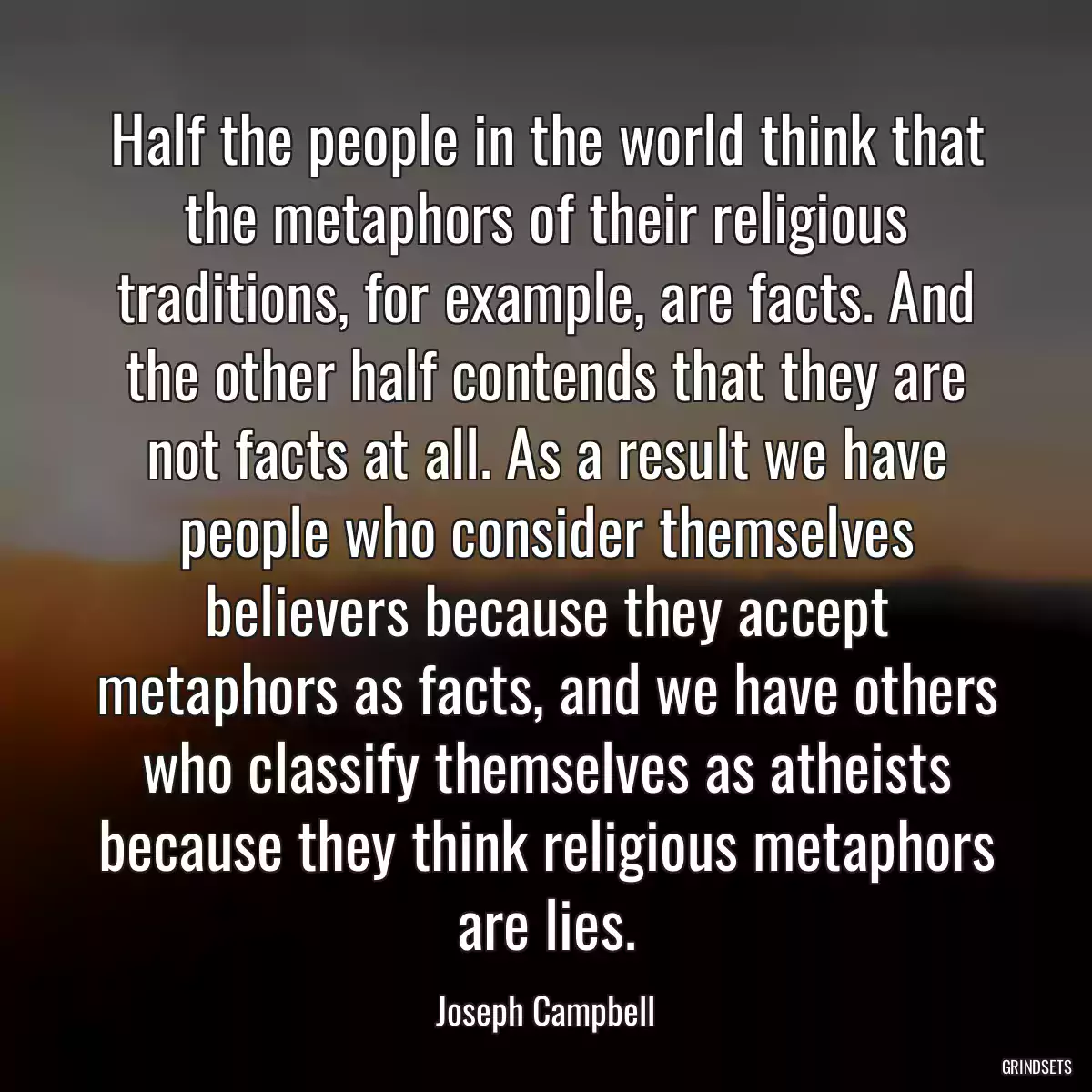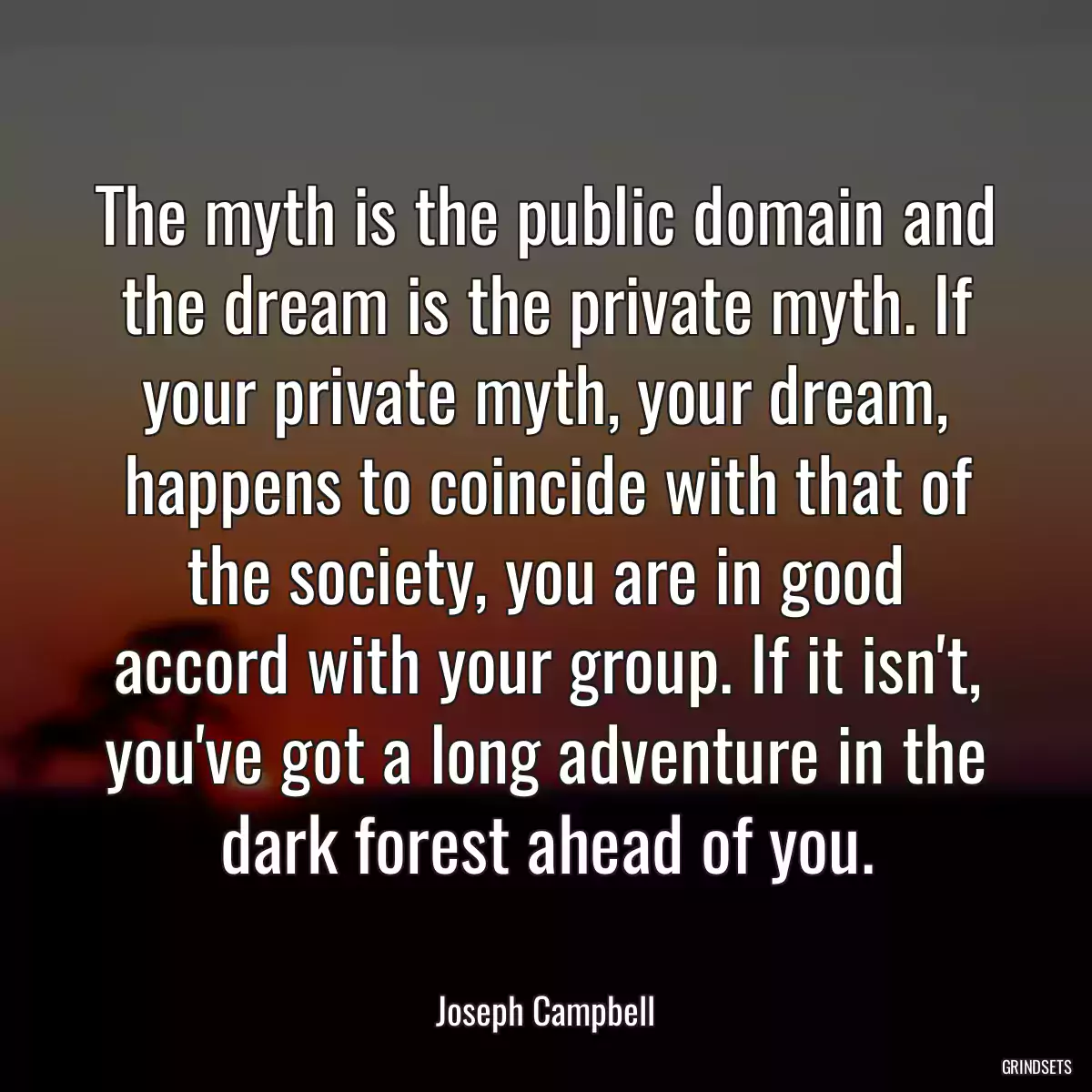
Quotes Joseph Campbell - page 2
Find dozens of Joseph Campbell with images to copy and share.

In the absence of an effective general mythology, each of us has his private, unrecognized, rudimentary, yet secretly potent pantheon of dreams.
When you follow your bliss...doors will open where you would not have thought there would be doors, and where there wouldn't be a door for anyone else.
It is by going down into the abyss that we recover the treasures of life. Where you stumble, there lies your treasure.
You may also like
......the interesting thing was that the Roman Catholic monks and the Buddhist monks had no trouble understanding each other. Each of them was seeking the same experience and knew that the experience was incommunicable. The communication is only an effort to bring the hearer to the edge of the abyss; it is a signpost, not the thing itself. But the secular clergy reads the communication and gets stuck with the letter, and that's where you have the conflict.
I think that Jean Houston has broken through to a new understanding of the sense and uses of inward-turned contemplation-a n understanding that leaves the Freudian schools of technique and theory far behind. The accent is not on the curing of disease but on the enlargement, rather, of our health.
The conquest of the fear of death is the recovery of life's joy. One can experience an unconditional affirmation of life only when one has accepted death, not as contrary to life, but as an aspect of life. Life in its becoming is always shedding death, and on the point of death. The conquest of fear yields the courage of life. That is the cardinal initiation of every heroic adventure - fearlessness and achievement.
One can experience an unconditional affirmation of life only when one has accepted death, not as contrary to life, but as an aspect of it.
We must let go of the life we have planned, so as to accept the one that is waiting for us.

Half the people in the world think that the metaphors of their religious traditions, for example, are facts. And the other half contends that they are not facts at all. As a result we have people who consider themselves believers because they accept metaphors as facts, and we have others who classify themselves as atheists because they think religious metaphors are lies.
The happy ending of the fairy tale, the myth, and the divine comedy of the soul, is to be read, not as a contradiction, but as a transcendence of the universal tragedy of man. The objective world remains what it was, but, because of a shift of emphasis within the subject, is beheld as though transformed. Where formerly life and death contended, now enduring being is made manifest-as indifferent to the accidents of time as water boiling in a pot is to the destiny of a bubble, or as the cosmos to the appearance and disappearance of a galaxy of stars.
Anyone who has had an experience of mystery knows that there is a dimension of the universe that is not that which is available to his senses. There is a pertinent saying in one of the Upanishads: When before the beauty of a sunset or of a mountain you pause and exclaim, ‘Ah,’ you are participating in divinity. Such a moment of participation involves a realization of the wonder and sheer beauty of existence. People living in the world of nature experience such moments every day. They live in the recognition of something there that is much greater than the human dimension.
The priests used to say that faith can move mountains, and nobody believed them. Today the scientists say that they can level mountains, and nobody doubts them.
When before the beauty of a sunset or a mountain, you pause and exclaim, 'Ah,' you are participating in divinity.
A ritual is the enactment of a myth. And, by participating in the ritual, you are participating in the myth. And since myth is a projection of the depth wisdom of the psyche, by participating in a ritual, participating in the myth, you are being, as it were, put in accord with that wisdom, which is the wisdom that is inherent within you anyhow. Your consciousness is being re-minded of the wisdom of your own life.
When you are in accord with nature, nature will yield its bounty. This is something that is coming up in our own consciousness now...recognizi ng that by violating the environment in which we are living, we are really cutting off the energy and source of our own living. And it’s this sense of accord, so that living properly in relation to what has to be done in this world one fosters the vitality of the environment.
For those in whom a local mythology still works, there is an experience both of accord with the social order, and of harmony with the universe. For those, however, in whom the authorized signs no longer work-or, if working, produce deviant effects-there follows inevitably a sense both of dissociation from the local social nexus and of quest, within and without, for life, which the brain will take to be for 'meaning'.
We have today to learn to get back into accord with the wisdom of nature and realize again our brotherhood with the animals and with the water and the sea.
You may also like

We have today to learn to get back into accord with the wisdom of nature and realize again our brotherhood with the animals and with the water and the sea. To say that divinity informs the world and all things is condemned as pantheism. But pantheism is a misleading word. It suggests that a personal god is supposed to inhabit the world, but that is not the idea at all. The idea is trans-theological. It is of an indefinable, inconceivable mystery, thought of as a power, that is the source and end and supporting ground of all life and being.